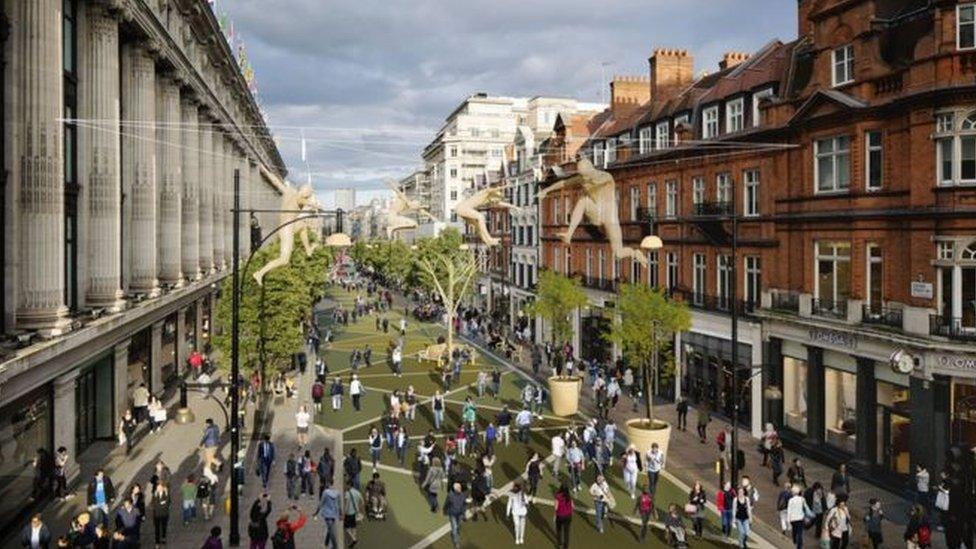ULEZ, Crossrail and constraint: Khan's three years in charge
- Published
- comments
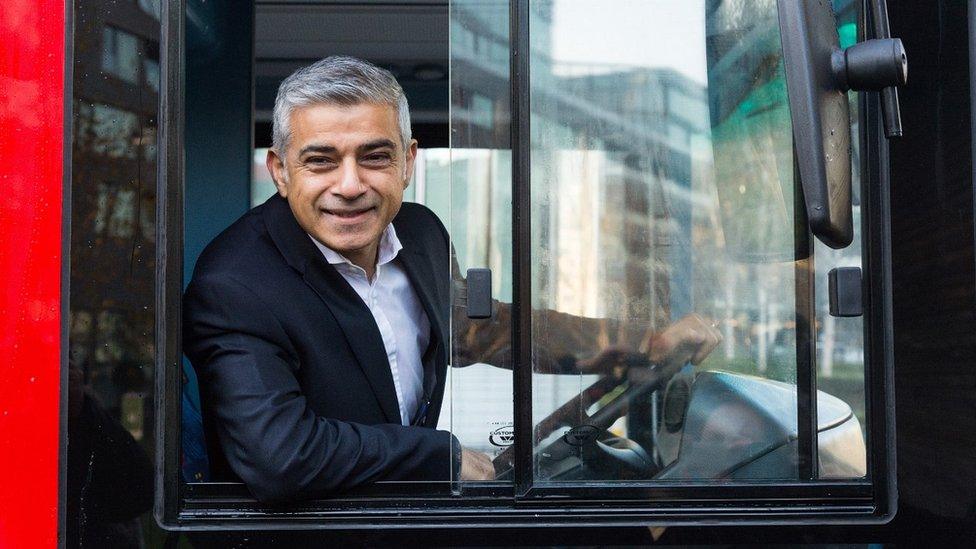
Sadiq Khan has been in charge of London's transport system for three years
The Tube, trains and buses have kept running but Sadiq Khan's first three years in charge of Transport for London (TfL) are really a story of constraint.
While it only gets a passing mention in the second line of his 2016 transport manifesto, the Crossrail hangover looms large over this mayoralty.
And if you think the delay to the east-west line doesn't affect you - I'm sorry to say it might.
The reduction in revenue until it opens is being estimated by the credit agency Moody's at around £1bn.
That is on top of a government grant reduction (£700m average per year) and the cost of the mayor's own fares freeze (£640m until 2020).
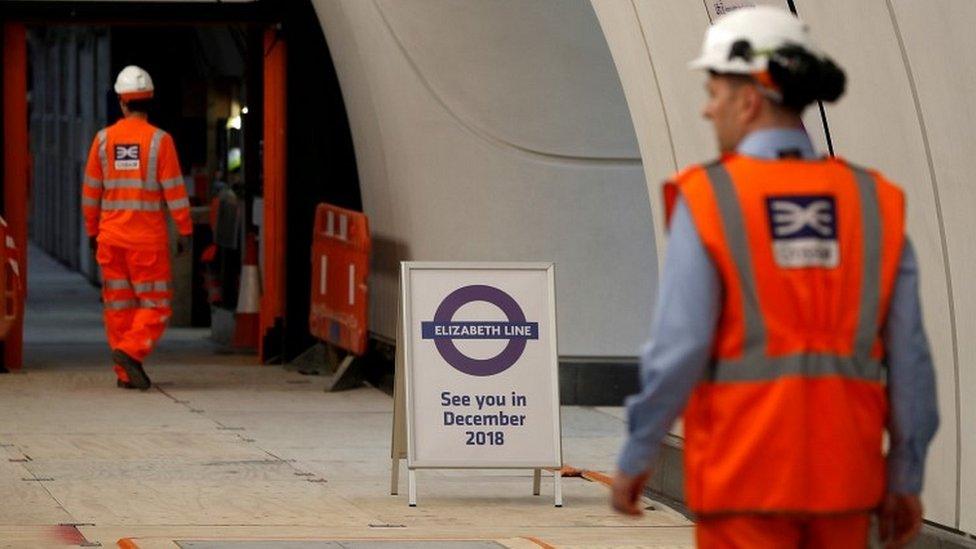
Crossrail was originally due to open in December 2018
That reduction in income has had consequences and constrains the mayoral ambition for new infrastructure.
Already the Camden Town station upgrade has been delayed, as has the Northern Line extension to Battersea, and the signalling upgrade to the Piccadilly line.
In 2017 new Jubilee and Northern Line trains aimed at increasing frequency were also delayed.
Bus mileage is also going to be cut by 7% by 2022. Thousands of jobs have gone at TfL and there are efficiencies still happening. All this and TfL is still in deficit.
The delay to Crossrail is also being paid for with a time extension to the business rate supplement.
That could have been used for other projects like Crossrail 2 and Crossrail 3. Funding for those is at best pushed back.
In his manifesto, the mayor said he would "plan the next major infrastructure projects for the long term - such as a potential Crossrail 3, new orbital links for outer London, DLR and tram extensions…". There isn't much evidence of that.
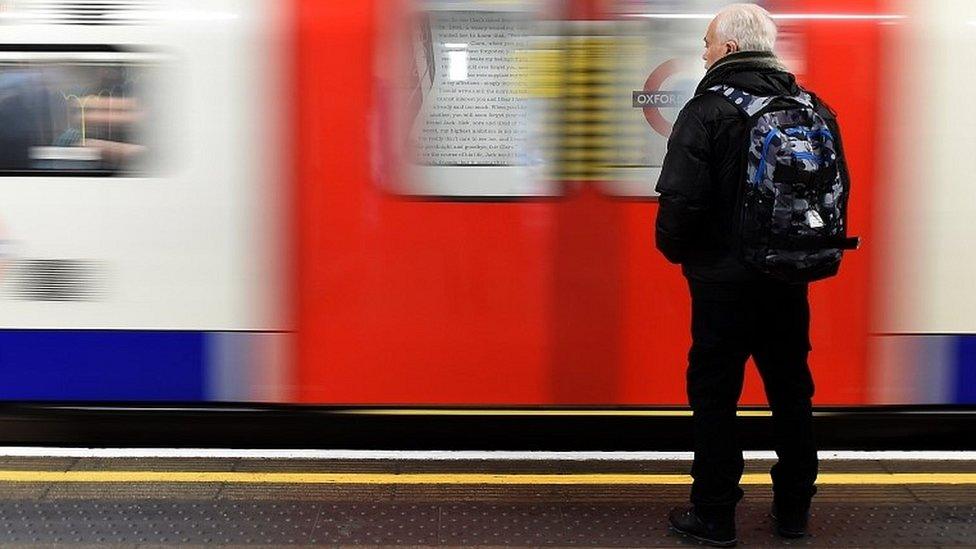
The Night Tube began running shortly after Sadiq Khan became mayor
Very few commentators think the mayor will stick to his fares freeze for the next mayoral campaign.
Gareth Edwards from London Reconnections said: "He's been working in a very tight environment. Given he's had very little room to manoeuvre he's done quite well.
"He's brought things in like ULEZ, some improvements in cycling and lots of things round the edges like the bus hopper ticket.
"On Crossrail, whether he agrees with it or not, there was a lack of kind of oversight on his part and maybe on the Crossrail board's part where in a sense they fell in love with their own legend, that they were going to open on a very strict deadline.
"One of the things we're seeing now is a more realistic approach."
The mayor has always previously said the Crossrail board made it clear the service would be finished "on time and on budget". And as soon as he knew about the delay he brought in new management.
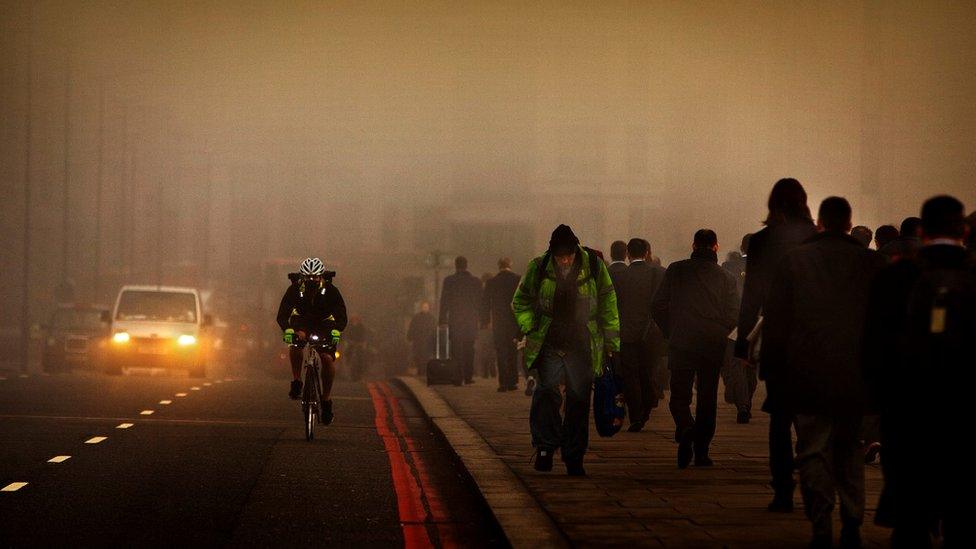
Cyclists in London have called for more cycle lanes in the capital
Elsewhere the Night Tube and Overground are up and running.
City Hall says there are more protected cycle lanes but cyclists want more and don't like the quality of the Quietways.
Industrial relations have improved for now, although pay talks have just started and will probably get ugly.
And the black cab lobby is not happy about how he has dealt with Uber and congestion.
And what was meant to be the legacy from Sadiq Khan's first term - the Oxford Street pedestrianisation - has been killed off by local opposition and politics.
Tony Travers, from the London School of Economics, said: "The big risk is the levelling off or decline in TfL's revenue from fares coupled with the costs of Crossrail is that it'll be seen as a good thing or inevitable to delay regular investment in the Tube.
"That always opens the door to the kind of problems London had in the past and problems New York subway has now."
London's ULEZ: What you need to know
Elsewhere, the mayor has delivered the ULEZ early where older more polluting cars pay.
Widening it out up to the North and South circulars will face more opposition but there is no doubt it is one of the most radical pollution charging schemes in the world with the latest figures showing 70% of vehicles in the zone comply.
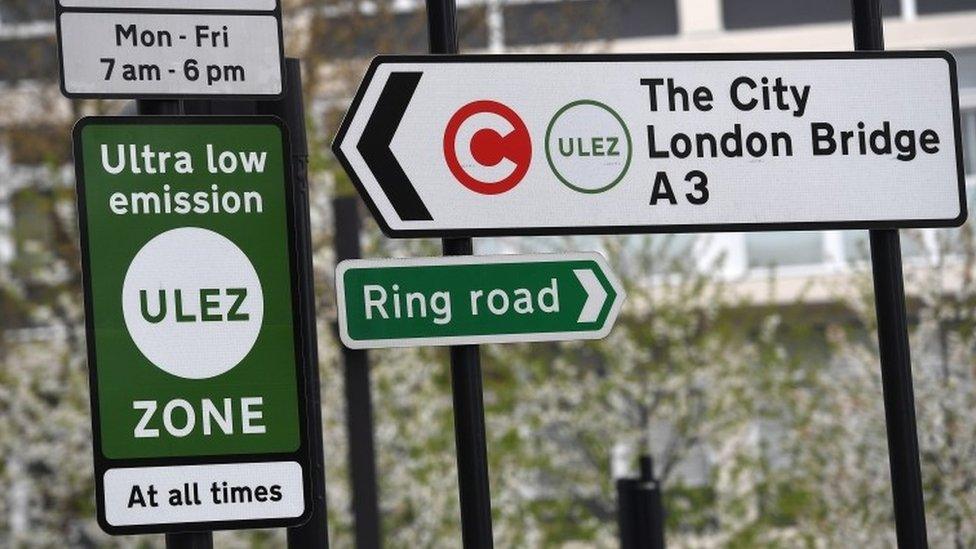
London's ULEZ began on 8 April this year
Silivya Barrett from Centre for London said: "The ULEZ is really needed especially to help poorer Londoners who live in urban areas with high pollution.
"But the effect of ULEZ is limited at the moment due to its small area so expanding it will be the next step in combination with smart charging and making it fairer for those who can't afford cleaner vehicles."
Every mayor wants a legacy. Ken Livingstone had the congestion charge, Boris Johnson the hire bike scheme, Sadiq Khan will probably be remembered for pollution charging in an era of constrained finances.
- Published5 April 2019
- Published26 March 2019
- Published20 March 2019
- Published9 January 2018
- Published8 June 2018
